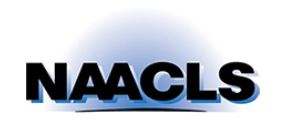Melissa White, Medical Laboratory Technology Program Coordinator
(304)367-4790
Melissa.White@pierpont.edu
Accrediting Agency
National Accreditation Agency for Clinical Laboratory Sciences (NAACLS )
5600 N. River Road, Suite 720
Rosemont, IL 60018-5119
(773) 714-8880
www.naacls.org

Program Purpose
The Medical Laboratory Technology program provides education and training for students to become Medical Laboratory Technicians (MLTs). MLTs perform a variety of laboratory tests in blood banking, chemistry, hematology, immunology, microbiology and urinalysis.
The two-year Medical Laboratory Technology (MLT) Program is nationally accredited by the National Accrediting Agency for Clinical Laboratory Sciences (NAACLS). In addition to offering a general studies and a laboratory based general science curriculum, the program is also designed to provide students with 42 credit hours of required MLT clinical lecture and laboratory courses, which are integrated with a hospital or clinic based practicum experience. A current list of clinical agencies affiliated with the program can be obtained from the MLT Clinical Education Coordinator.
Program Requirements
Medical Laboratory Technology is an open enrollment, competitive program. To complete the program, students are required to:
- Complete a criminal background check which is clear of all felony and class A misdemeanors
- Complete a drug screen which is negative for drugs of abuse, alcohol, and non-prescribed medications
- Meet health requirements and essential functions
- Be able to provide their own transportation to assigned clinical sites.
Students begin the program in the fall semester and are required to complete the following open enrollment courses. These courses contain prerequisite content in biological sciences, chemistry and mathematics that provide the foundation for course work required in the laboratory science program.
Students must complete each of these courses with a “C” or better to be eligible to continue in the program. The following spring semester is competitive due to MLT program capacity. If the program reaches capacity (currently 18 students), the top 18 students, based on grade point average of the 6 courses listed above, are eligible to continue in the program. The second semester (spring) comprises the MLT cohort entering MLT major restricted courses.
(Students should also complete ENGL 1104 in the first semester to follow MLT Model schedule)
Any students not selected will have the option of continuing into one of a variety of programs, including, but not limited to, the “Medical Laboratory Assistant - Certificate of Applied Science” program and the “Health Sciences - Associate of Applied Science” program.
Students are required to complete each of their courses throughout the program with at least a “C” or better and maintain a 2.0 GPA. Any classes accepted as substitutes for curricular classes also require a grade of “C” or better. Failure to meet any of these requirements will result in dismissal from the program. Students who have been dismissed due to academic failure or cohort capacity can return the next academic year to reattempt progression in the MLT Program.
Student Learning Outcomes
Upon successful completion of the A.A.S. degree in Medical Laboratory Technology, graduates will be able to do the following:
- Demonstrate knowledge of and competence in performing test methodologies and assume responsibility to safely perform modern clinical laboratory tasks expected of an entry level MLT/CLT
- Differentiate between normal and abnormal laboratory test results and correlate laboratory findings to common disease processes and assay variability
- Communicate verbally and nonverbally with the patient, physicians, health care delivery personnel and peers in an effective, appropriate, and capable manner
- Demonstrate professional behavior that reflects appropriate responsibility and professional standards that are legal, confidential, ethical and safe
Opportunities
Graduates of the MLT program are eligible and encouraged to take a national certification exam; becoming a nationally certified MLT will greatly enhance a graduate’s marketability. MLT program graduates may work in a variety of settings. They are employed by hospitals, clinics, physician office laboratories, reference laboratories, pharmaceutical companies, research laboratories, veterinary laboratories, public health facilities, and business and industry. The A.A.S. degree in Medical Laboratory Technology is quite versatile. Graduates of the program may choose to continue their education and earn a Baccalaureate degree in Allied Health Administration, Biology, or even Business. Some graduates choose to become a Medical Laboratory Scientist (MLS), which requires a Baccalaureate degree in medical laboratory science; or MLT certification, plus a Baccalaureate degree in a physical or biological science, and two years of full time acceptable clinical laboratory experience.
Granting of the degree is not contingent upon passing an external certification or licensure examination. Passing an external exam is not required for graduation from the MLT program.
Pierpont MLT Program NAACLS Benchmark Report
| |
2021 |
2022 |
2023 |
3-Year Program Average |
NAACLS Benchmark |
|
Certification Pass Rates
|
78% |
100% |
91% |
88% |
75% |
|
Placement Rates
(employed and/or continuing education within 1 year of graduation)
|
100% |
100% |
91% |
96% |
70% |
| Graduation Rates |
85% |
86% |
92% |
89% |
70% |
MLT Student Handbook (2023)
MLT Clinical Requirements
MLT Essential Functions